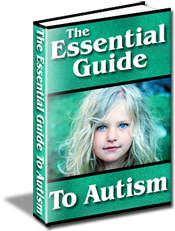Five Autism Types Explained
Click Here To Know The Simple Methods To Effectively Spot The 31 Signs of Autism
Autism used to be the term used for anyone with that particular condition. Today, there are several different sub categories for different levels of disability or function. No two children diagnosed will be the same, but there will be many things that they do have in common. With some high functioning autistics most people may not even be aware that they have autism, while others need assistance in almost any part of life, and they are obviously living a very different life than other children. More is being discovered about each of these different autism types as time goes on.
Asperger?s Disorder
This type of autism is something that you hear more and more about. These children are often misdiagnosed at first, and are thought to have Obsessive-Compulsive Disorder, or perhaps Attention Deficit Disorder. These children are very unskilled with social interactions and have problems with communicating. They have repetitive motions, and are fixated on patterns of all types. They can have above average language skills, though they don?t use them well in social situations. They are often clumsy, as motor skills are under developed. Those with Asperger?s are thought to have a talent that they focus on almost exclusively, and are considered to be highly intelligent. Recent findings indicate that Albert Einstein may have had this condition.
Kanner?s Syndrome (classic autistic disorder)
This particular type of autism was named after a Dr. Kanner. He described and studied it in the 1930s and into the 1940s. This is the well-known type of this condition that is very common. Those with Kanner?s have very limited emotional connection with anyone, and they are very into their own little world. They want everything to be the same all of the time, and this includes routine (sometimes down to the exact minute) clothing, food, and television shows or movies. They can be deeply effected by noises, bright lights and smells. They are generally considered to be low functioning, but how well their mind works is largely unknown because of extremely poor social and communication skills.
Pervasive Developmental Disorder--Not Otherwise Specified (PDD-NOS).
This term is used to describe children who have most of the same symptoms as classic autism. They will need the same interventions and help that autistic children require. The differences between PDD-NOS and autism are minor and usually only obvious to researchers and doctors.
Rett?s Syndrome
Rett?s is a rare and relatively little-known type of autism, and it seems to only happen in girls. This branch of autism was first described by Dr. Rett. These patients often have problems with muscle atrophy, and tend to do repetitive hand motions. They area almost always mentally retarded to some degree. These girls are very low functioning and will need care for most of their lives. This particular type of autism has been diagnosed since the sixties, but in the late 1990s a gene that might cause this condition was found.
Childhood Disintegrative Disorder
This is also thankfully pretty rare and something that strikes children who appear to have normal development from birth. Usually between two and four years of age this changes. These children begin to regress, and often do not potty train. They will lose the will and the ability to interact with other children, and will lose an interested in play. They will also have problem with the motor skills that were something they at one time had mastered. They will stop talking, or their communication skills will regress to some degree.
Though there are more autism types out there, these tend to be the most common. They are all things that take parents by surprise, and each comes with their own set of difficulties. Most children will need to be cared for long after their peers have established independence, even though the will to be on their own is very strong.
By Rachel Evans. Sign up for a free newsletter about autistic and discover more on the signs and symptoms of autism
Labels: autism_definition, autism_disorder_spectrum, autism_group_support, autism_pdd, autism_risperdal, autism_services

